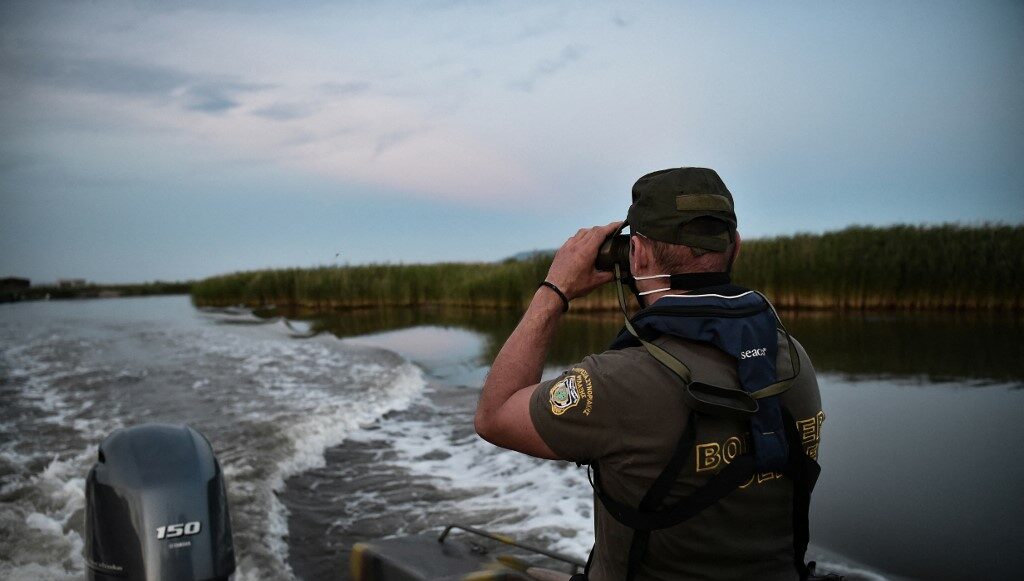For years Greece has been accused of illegally pushing asylum-seekers back to Turkey, a practice it strenuously denies.
But according to witnesses and rights groups, the summary deportations are also hitting vulnerable opponents of Turkish President Recep Tayyip Erdoğan.
Kurdish writer Meral Şimşek, 42, is one of several people who told AFP they were sent back to Turkey to face imprisonment and possible torture after already making a perilous crossing of the border on the River Evros.
Şimşek said her experience was harrowing. She claimed Greek police forcibly strip-searched her and another woman from Syria, and that she nearly died on the journey back.
“They took our phones and all our documents. They told us to undress and strip-searched us. They even put hands on my vagina,” she said.
The two women were then put into an unmarked van and driven back to the river.
– ‘Blood and urine’ –
“The vehicle smelled of blood and urine, indicating that other people had been abused in there,” the writer said.
Şimşek was then forced onto a dinghy piloted by two migrant men who “intended to drown” her, she claimed.
“I jumped into the water and swam to the other bank,” she said.
Last month Human Rights Watch said Greece was using men of apparent Middle Eastern or South Asian origin as “proxies” to facilitate illegal deportations at its land border with Turkey.
When she got back to the Turkish side, Şimşek was locked up in the nearby city of Edirne.
She was fortunate to avoid a 22-year prison sentence for belonging to a terrorist organization thanks to the help from Amnesty International and other rights groups.
But she still faces a 15-month sentence for spreading propaganda against the Turkish government.
“This experience at the Greek-Turkish border revived the trauma of my past,” said the writer, who was jailed and tortured in Turkey in the 1990s.
“I wanted to rebuild my life in Europe, be protected. Instead of that, I lived a nightmare,” she said.
– Change of attitude –
Greece has traditionally been sympathetic to the plight of Kurds, some of whom have been waging an insurgency against the Turkish state since 1984 that has claimed tens of thousands of lives.
But according to the Kurdistan Cultural Centre in Athens which assists fugitive Kurds, the policy appears to have changed last summer and many are now sent back to Turkey before being given a chance to apply for asylum in Greece.
Hundreds of non-Kurdish Turkish citizens have also sought protection in Greece following the failed coup against Erdogan in 2016.
Mehmet, a former police officer accused of being a member of the Gülen movement, a faith-based group inspired by Muslim cleric Fethullah Gülen who is accused by Erdoğan of plotting the coup, claimed Greece pushed him back three times last year.
He avoided the fourth expulsion thanks to a Greek lawyer, who helped him lodge an asylum request.
Meryem, a 32-year-old with dual Franco-Turkish nationality, said she was turned back in October even after showing Greek police her French identity card and a copy of her passport.
She was jailed in Turkey after being sentenced for being part of Gulen’s organization, which is now illegal. Her case is pending before the European Court of Human Rights.
Athens has always denied that its security forces engage in illegal pushbacks.
In March, Greece’s national transparency authority said a four-month investigation found no evidence of such practices.
EU border agency Frontex has also repeatedly been accused by rights groups of illegally returning migrants across EU borders.
Its chief Fabrice Leggeri quit last month amid an investigation by the European anti-fraud office OLAF, reportedly into alleged mismanagement.
Alkistis Agrafioti, a lawyer with the Greek Council for Refugees, said the time has come for the EU to mount a “serious” inquiry into pushbacks.
“Pushbacks not only run contrary to international law, but they are also accompanied by criminal acts — stealing, violence, abuse” and lives being put in danger, she added.
AFP did not receive a reply to a request for comment from the Turkish authorities.
AFP



